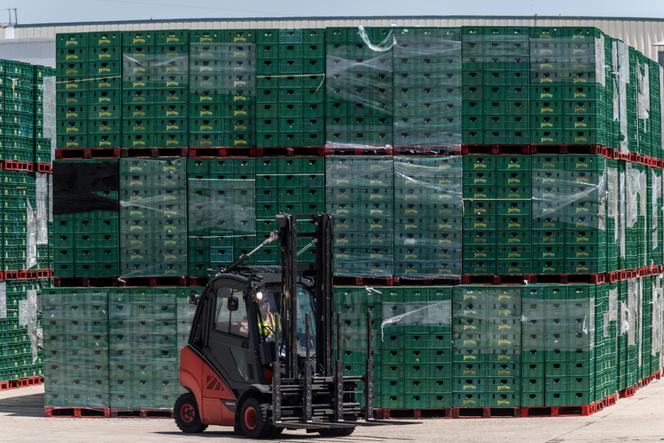


The French mineral water crisis has reached a new level. Nestlé Waters announced to Franceinfo radio station and Le Monde on Wednesday, April 24 that it had destroyed two million bottles of its Perrier brand "as a precautionary measure," due to the presence of fecal bacteria in one of the wells operated by the Swiss firm at its site in the town of Vergèze, southern France. According to Nestlé, this situation is the consequence of heavy rainfall during storm Monica, which hit the region in March.
In an order dated April 19, obtained by Agence France-Presse (AFP) and seen by Le Monde, the prefect of the Gard département where the site is located gave the company formal notice to "immediately suspend" the operation of one of its seven water extraction points in Vergèze, which had been "contaminated from March 10, 2024, and over several days by germs indicative of contamination of fecal origin (coliforms, Escherichia coli), but also by germs of the species Pseudomonas aeruginosa." The decree also emphasized that contamination of bottled water "may pose a health risk to consumers."
Presented as a one-off event by both the prefecture and the Swiss company, the unprecedented situation is the consequence of a general deterioration in the quality of the groundwater used by Nestlé on the site. In August 2021, anticipating the imminent results of an investigation by the General Directorate for Competition, Consumer Affairs and Fraud Control (DGCCRF), Nestlé executives requested a meeting with the office of Agnès Pannier-Runacher, then minister responsible for industry, in order to admit to having used prohibited treatments – microfiltration, UV filters and activated carbons – to deal with repeated or chronic bacterial or chemical contamination on some of its wells. These included sites in Vergèze, but also in the Vosges département, where Hépar, Contrex and Vittel water is drawn from.
The government has relaxed regulations on microfiltration, allowing these treatments to continue. This comes with the risk of creating uncertainty about the legality of maintaining the "natural mineral water" designation – these highly-valued waters are supposed to come from perfectly preserved sources and not to have undergone disinfection, like tap water, for example.
Other purification techniques have had to be discontinued. Appealed to by the Occitanie and Grand-Est Regional Health Agencies (ARS), the French National Agency for Food, Environmental and Occupational Health and Safety (ANSES) expressed concern, in a confidential memo submitted in October 2023, about the consequences of discontinuing these treatments, deeming that the "sanitary quality" of the water produced in France by the Nestlé group was "not guaranteed."
You have 52.95% of this article left to read. The rest is for subscribers only.
